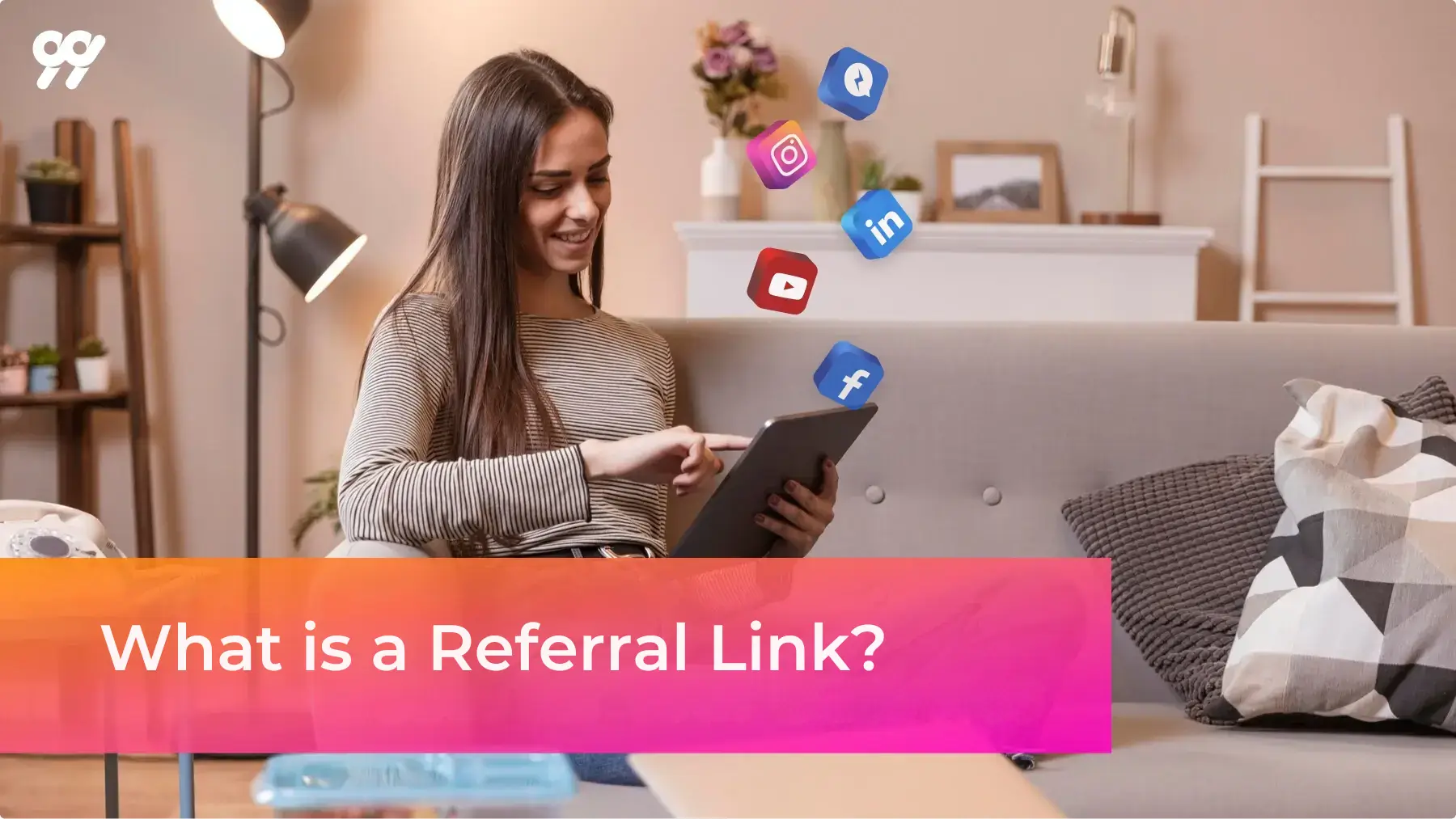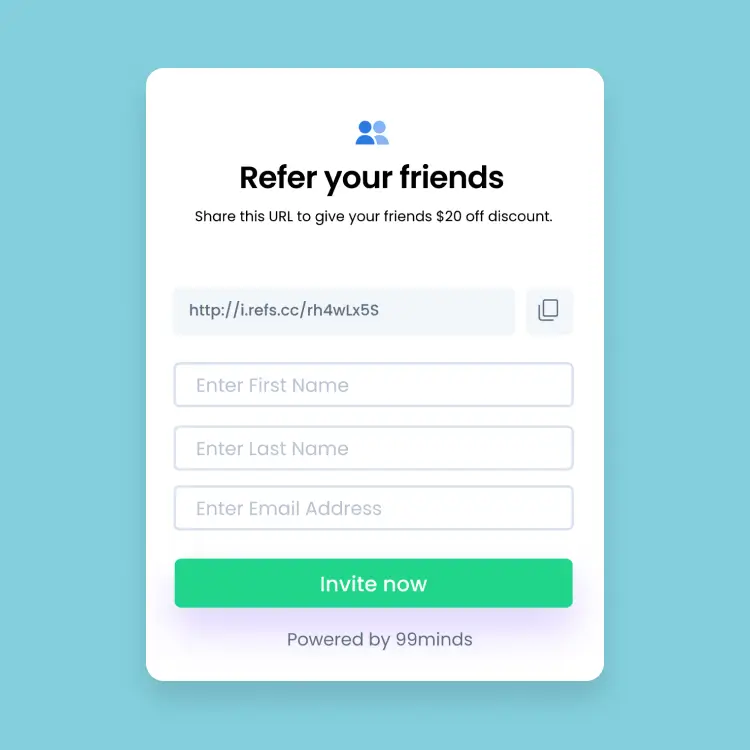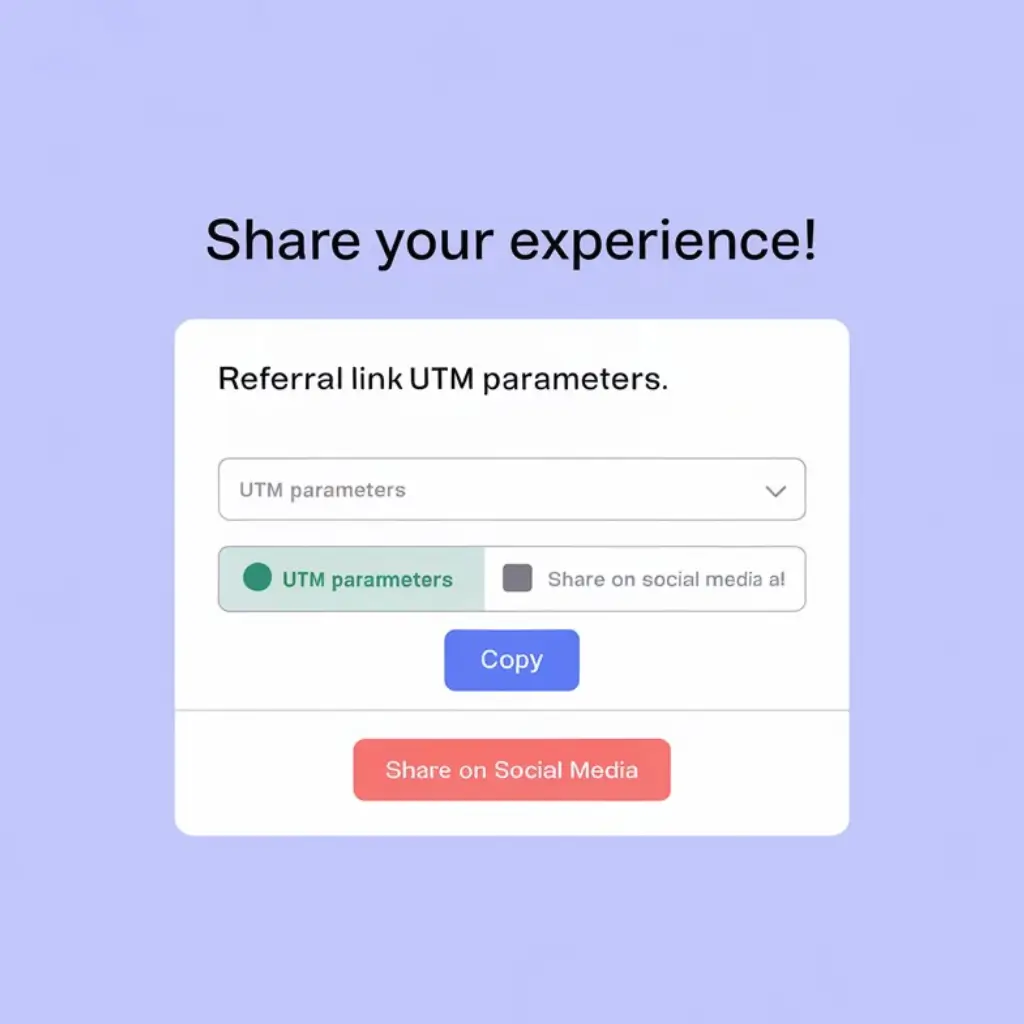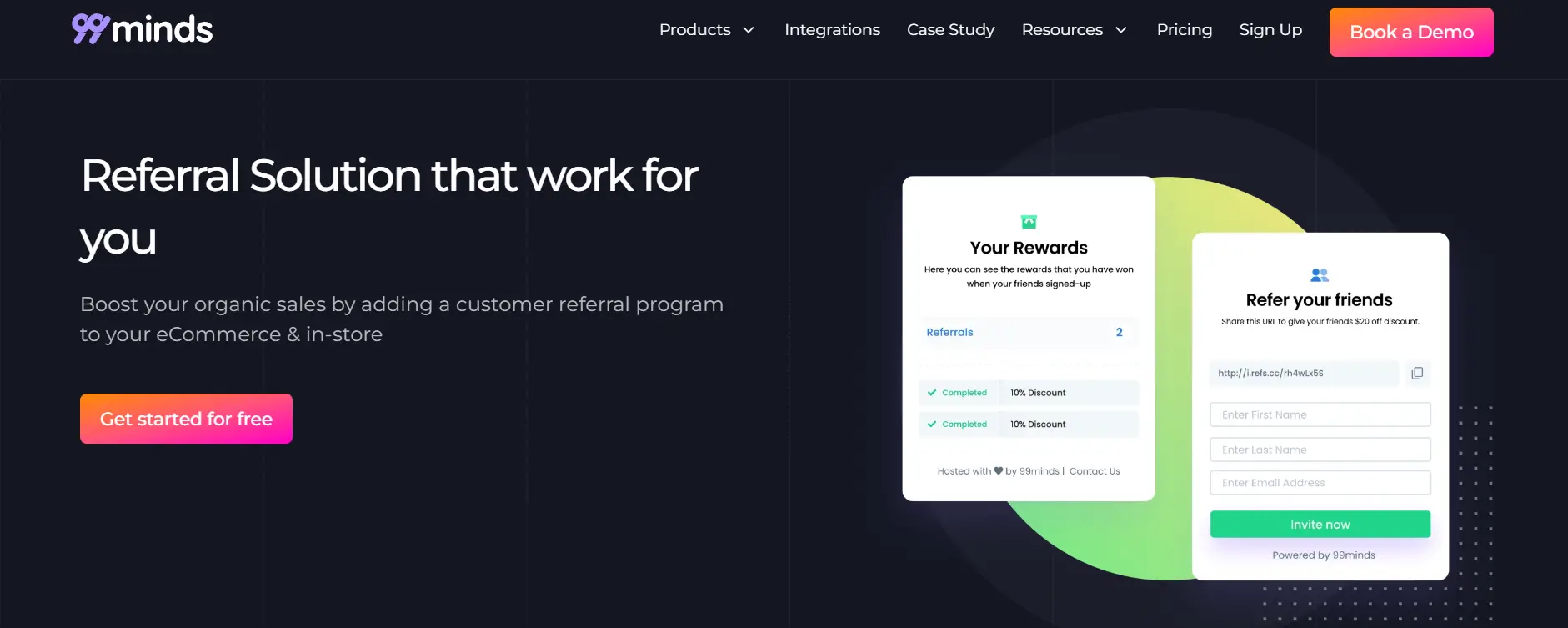
A referral link is a unique URL that businesses provide to customers, affiliates, or influencers as part of a referral program. It helps track when someone shares the link with friends or family and encourages new customers to visit the business. When a referred person clicks the link and completes an action such as a purchase or signing up, the brands can reward the referrer with discounts, cashback, store credits, or other incentives. This strategy helps brands to grow their customer base and increase sales.

Imagine receiving a message from a friend that says, “Sign up using my link and get $20 off your first purchase!” This is a classic example of a referral link in action. These links streamline the referral process by making it effortless for the referrer and the new customer. Users simply click the link instead of manually entering a referral code, which automatically applies any associated rewards or discounts, creating a frictionless experience.
Businesses across multiple industries leverage referral links to boost customer acquisition and enhance brand loyalty, such as eCommerce stores, SaaS businesses, subscription services, and affiliate marketing programs. By implementing referral links, businesses tap into organic word-of-mouth marketing, turning satisfied customers into active brand advocates who help attract high-quality leads.
Table of Contents:
Referral marketing is an effective method for acquiring customers, and referral links provide unique benefits that boost their impact. Here’s why implementing this strategy is beneficial for driving growth.
Referral links make sharing easy. Customers can share links with less effort via email, social media, or messaging apps with just one click. This makes it simple for them to promote your brand.
The business encourages its customers to share referral links with friends and family. In return, customers receive rewards, while the businesses gain new customers This helps brands to reduce marketing costs through an organic and cost-effective growth strategy.
Referral links have tracking features that help businesses measure how well their campaigns are doing. Marketers can see data on clicks, conversions, and engagement. These insights help them to optimize marketing strategies for better performance.
When customers share referral links with others, those people trust their recommendations. This helps your brand gain more engagement, resulting in higher sales and more sign-ups for your business.
Customers who participate in referral programs often feel more connected to the brand. Offering rewards and incentives through referral links helps increase customer loyalty. As a result, consumers are more likely to stay loyal to brands that provide them with added value.
Customers love sharing their favorite products and services. When they get rewards for this, they become advocates for the brand. This improves the brand’s reputation and credibility, leading to long-term growth and a broader market presence.

Referral links operate through a structured tracking system that rewards users for sharing them. Each link contains a unique identifier that connects back to the referrer in the company’s database.
Businesses promote their referral program by informing customers about its benefits. Once a customer receives their referral link, they can share it with their network such as friends, family, coworkers, or a broader audience via social media.
When someone clicks the referral link, they are directed to the business’s website or product page. A unique referral code tracks who referred the new customer. The system then monitors their actions, such as making a purchase or signing up for a service. If the referral meets the program’s criteria, the referrer earns a reward.
Referrers receive incentives based on the company’s referral program rules, which may include discounts, bonuses, cashback, or other perks. Some businesses use double-sided referral programs, where both the referrer and the referred customer receive rewards. This cycle continues as more people share and engage with the referral links, driving ongoing customer acquisition.
Creating referral links can be done in multiple ways, depending on your business model, technical capabilities, and goals. Here are different approaches:
In manual generation, referral links can be generated by adding unique identifiers at last in URLs. These identifiers are assigned by businesses to users who share referral links. I the customer clicks on the link and takes a specific action, such as making a purchase or signing up, the referrer gets the credit. This is a simple and cost effective way of getting referrals that works quite well for small businesses, but as they grow tracking referrals can become difficult.
Tracking tags in URLs allows you to monitor referral traffic in Google Analytics by identifying the source (utm_source), medium (utm_medium), and name (utm_campaign) of the traffic. This approach enables businesses to track the source of referrals, measure engagement metrics, and improve marketing strategies.

Using referral software like 99minds simplifies the referral process. These tools generate custom referral links, monitor conversions, and incentivize rewards like discounts, cash rewards, or loyalty points.
These software integrate seamlessly with e-commerce companies providing smooth tracking and reporting. They operate automatically, so businesses do not need to check referrals or distribute rewards manually. This simple approach is perfect for businesses that want to improve their referral programs efficiently and accurately.

Users can share referral links on social media platforms such as Facebook, Instagram, Twitter, and WhatsApp which users can copy and paste into messages, posts, or their bio sections.
This approach is highly effective for increasing organic reach, as users naturally spread the links within their social circles. It is particularly useful for viral marketing campaigns, brand awareness, and user-generated promotions, helping businesses acquire new customers through trusted referrals.
Creating referral links is just the first step. Now, you need to encourage people to use them. Here are some strong ways to promote effectively:
Making it easier to share referral links encourages customers to share them more frequently. Provide social media buttons and ready-made messages so customers may easily share their links on:
Personalized communication is essential for increasing customer engagement. Send custom emails to remind customers to share their referral link and explain the benefits they get from referring a friend.
Encourage urgency by offering additional rewards for a short period. For example, provide double referral credits or special discounts if they refer someone within a weekend. Limited-time offers create excitement and prompt customers to act quickly.
Display referral program banners on your homepage, product pages, and checkout pages. Regularly promote the program on social media.
Working with influencers is a great way to boost brand awareness and drive traffic to your business. Influencers can share referral links with their loyal followers, helping to bring more visitors to your business.
A referral link and a referral code both track and reward customer referrals, but they function differently.
| Aspect | Referral Links | Referral Codes |
|---|---|---|
| Ease of Sharing | Share referral links via email, social media, or messages with a single click. | Requires users to enter the code manually and often needs additional instructions. |
| User Experience | Automatically directs users to a landing page where the offer is applied, reducing friction. | Users may struggle to enter the code correctly or forget to apply it, causing frustration. |
| Lead Acquisition | Sends users to a personalized landing page, increasing trust and engagement. | Feels less personalized and requires extra effort from the user. |
| Tracking & Analytics | Provides detailed tracking of referrals, clicks, and conversions for accurate performance measurement. | Tracking is more challenging and relies on manual code entry, leading to potential errors. |
| Follow-Up & Nurturing | Encourages users to enter their details, enabling businesses to send follow-ups and personalized marketing. | Typically allows users to redeem offers without submitting contact details, limiting future engagement. |
Referral links are an efficient and easy way for businesses to promote word-of-mouth marketing. They not only ease the customer acquisition process but also strengthen your bond with existing customers by simplifying sharing and tracking processes and reducing frustration. As brands seek new strategies to grow organic brand recommendations, incorporating referral links into marketing will lead to significant results.
At 99minds, we can assist you in developing a customized referral program to acquire more new customers. We can also help you set up effective referral marketing, which results in your satisfied customers turning into passionate advocates of your brand.